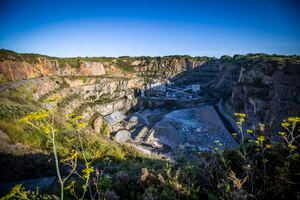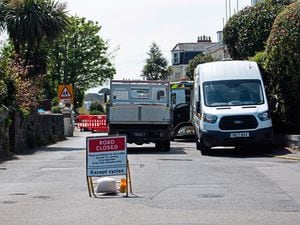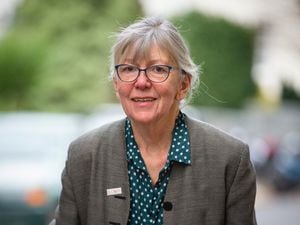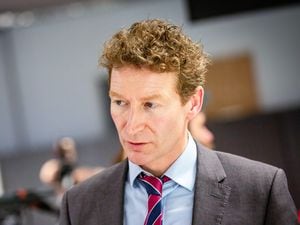Les Vardes viewed as water storage solution
LES VARDES quarry is being eyed up by Guernsey Water as a potential solution to long-term storage needs, as the expected effects of climate change are considered.

States’ Trading Supervisory Board president Peter Roffey told States members yesterday that water was ‘the most crucial thing in people’s lives, and we should put it absolutely at the top of our strategic agenda’, particularly with future weather patterns predicted to bring prolonged periods of rainfall and drought.
He said the island had been lucky, historically, to have had most of its reservoirs inherited from the quarrying industry rather than having to ‘impound valleys’ with dams.
‘There is one very obvious, very large quarry – that is still being quarried at the moment but which is coming to the end of its quarrying in the foreseeable future – which I think Guernsey Water would very much like to have, in order to safeguard the island against changing weather patterns,’ he said.
Les Vardes is the only remaining operating quarry in Guernsey and has also been considered as a potential landfill site.
Deputy Roffey said he expected Environment & Infrastructure’s policy letter on the site’s future use would come later this year.
His comments came during a wide-ranging debate prompted by consideration of Guernsey Water’s accounts for 2022.
Chief Minister Deputy Peter Ferbrache described the utility as being ‘well-run’ but said its four years of consecutive deficit was evidence that it needed to increase its charges by more than inflation.
‘We’ve got to be saying to people, “we want the quality of water we’ve got in Guernsey, but you’re going to have to pay for it” and the only way you’re going to get your clean water is if you invest in your infrastructure,’ he said.
Deputy Roffey confirmed that the fee structure was under review and was likely to change to fund much-needed investments.
In response to a question from Deputy John Dyke, who wanted to know whether the roll-out of water metering would reach 100% of customers, Deputy Roffey said there was no plan to make it compulsory and he declared an interest, insofar as his supply remains un-metered.
‘I like the freedom to water my greenhouse without worrying too much about how much I’m using,’ he said.
‘I might still be worse off – I don’t know.’
Deputy Sasha Kazantseva-Miller wanted to know why the cesspit emptying service only recouped about a third of the money that it cost to run.
Deputy Roffey described the issue as ‘a moral dilemma’ which was frequently discussed at both Guernsey Water and STSB.
Those who need the service were effectively being subsidised, but they were already paying waste water charges and it was not their fault that the main drain had not been extended to their properties.
He said the extension of the network remained an aim for the utility but ‘we will never get to the point of economically being able to justify every road in Guernsey having a main drain’.





